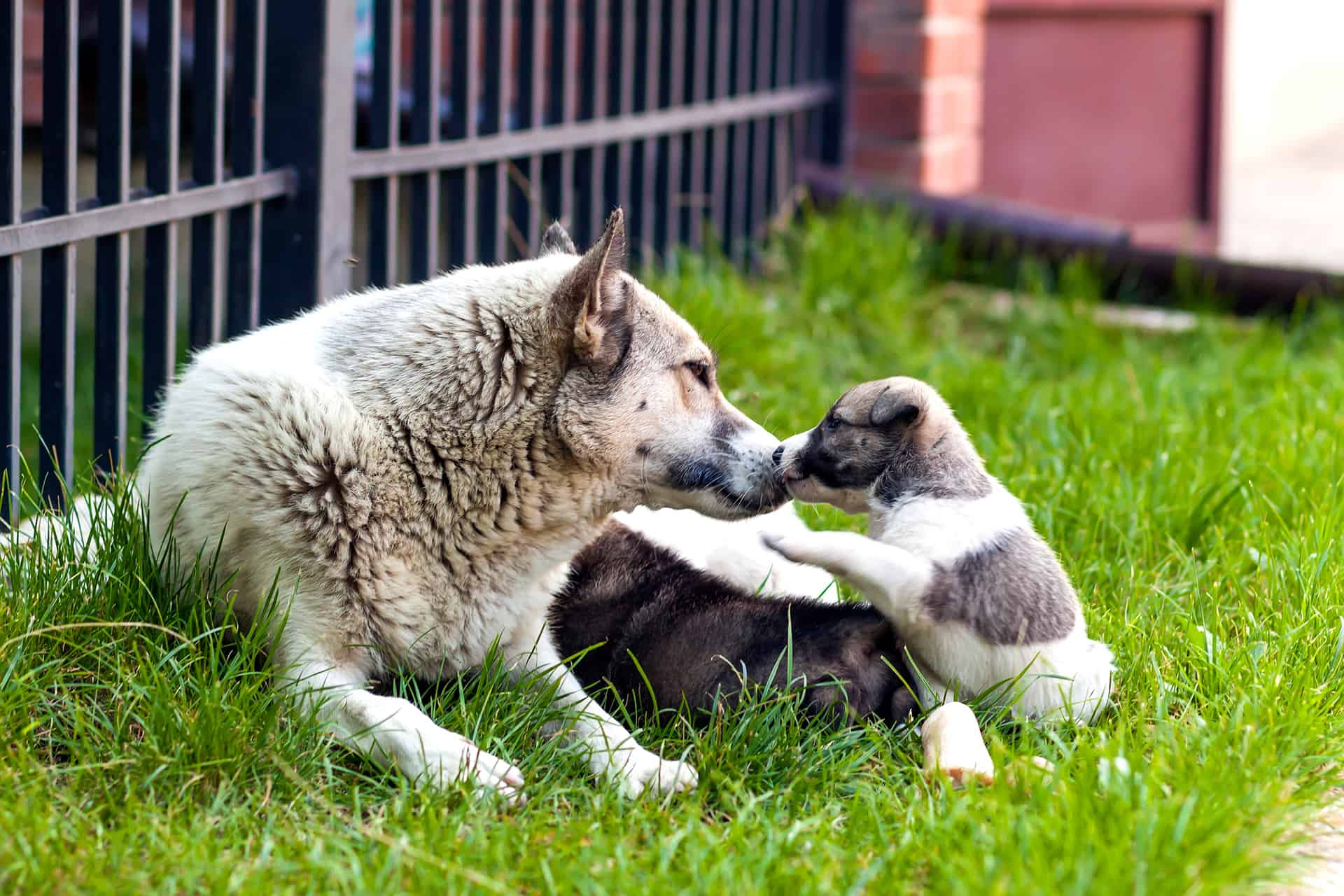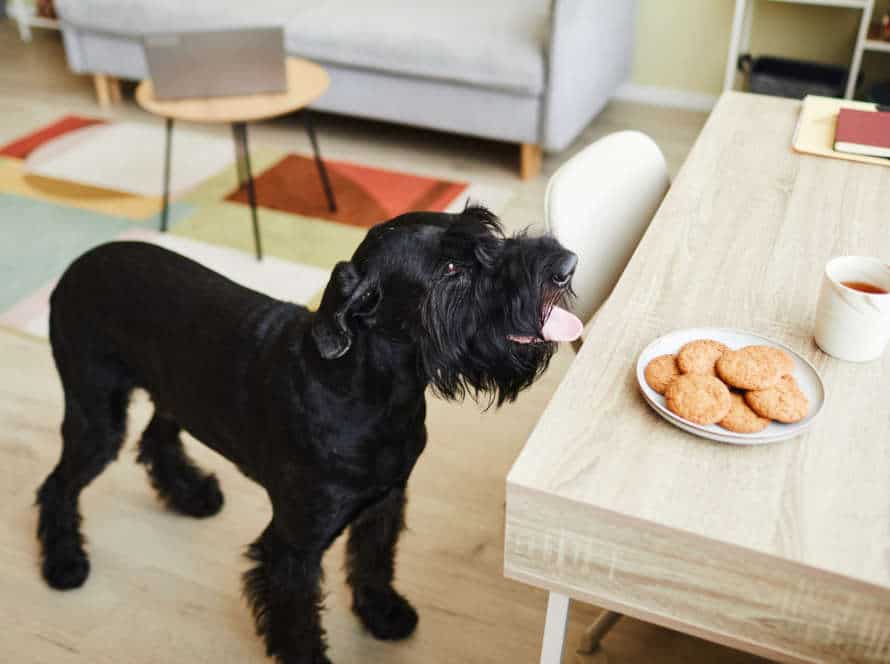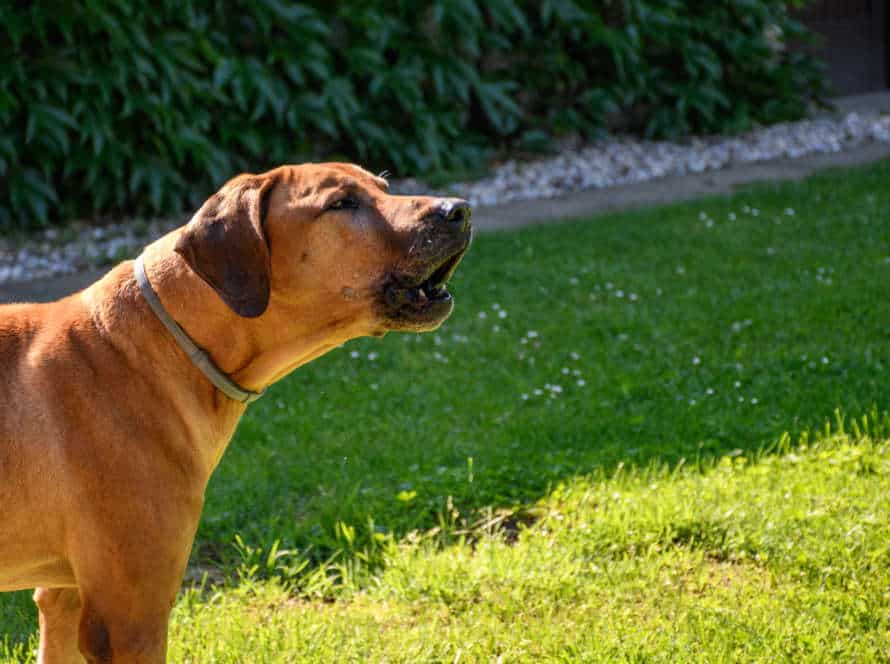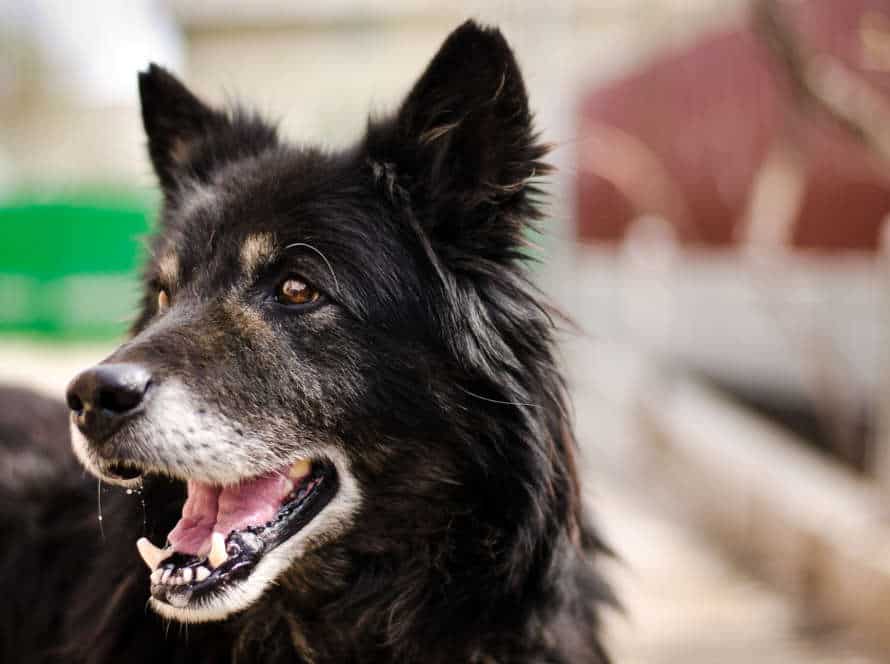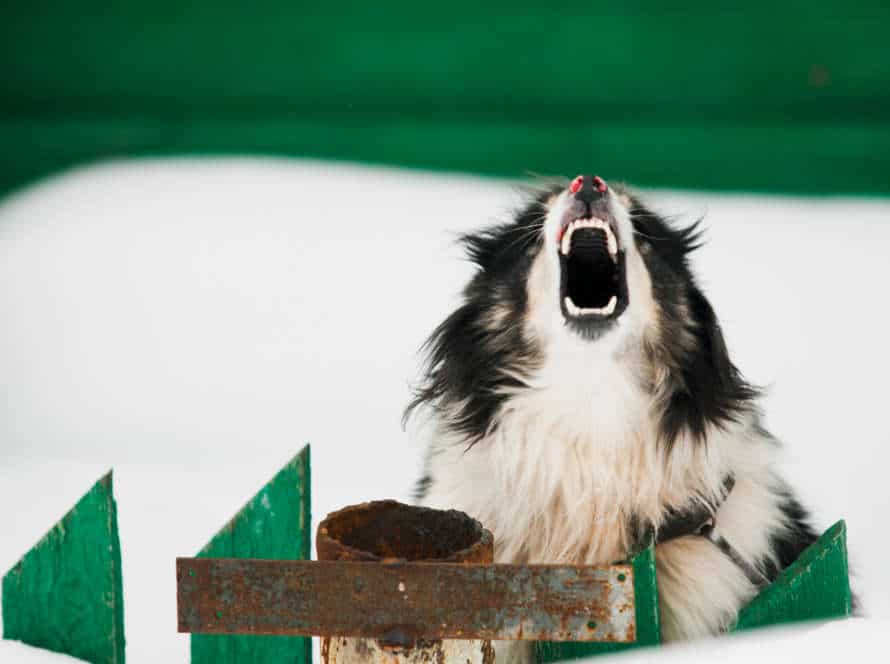Maternal Aggression: Protective Mother Dogs
Maternal aggression is a must-have trait for pups’ survival. Mom dogs may bark, growl, snarl or even attack when they sense danger. This behavior occurs in all breeds, big or small.
It’s key for pet owners to honor a mom’s boundaries and let her come to you. Socializing puppies at an early age is also important for them to develop good behavior.
Maternal aggression is natural and necessary. Respect this behavior to ensure the safety of mom and pups.
Understanding Maternal Aggression in Dogs
Maternal aggression is instinctive. Mums show it to protect their pup litter. It’s a response to perceived danger. It keeps the litter from harm. It is normal in dogs, but can cause issues. To handle it, we must understand it.
What is Maternal Aggression?
Maternal aggression is a normal behavior for mother dogs. It happens when the mother perceives a threat to her puppies. Anyone or anything near them can be seen as a threat, including other animals, humans, or inanimate objects.
A mother dog may growl, bark, bite, or show her teeth when feeling threatened.
It’s important for dog owners to understand this behavior and take safety precautions. This may mean separating the mom from other animals or introducing them slowly and carefully with supervision. Don’t interfere with the mom and her puppies during the first few weeks after birth. This could trigger maternal aggression.
Why do Mother Dogs become Aggressive?
Maternal aggression in dogs is a natural behavior. It’s due to a mother’s instinct to protect her puppies.
Triggering situations may include:
- Threats to the mother
- Strangers or animals near the puppies
- Separation from the puppies
Managing maternal aggression is very important.
To do this, give the mother and pups a safe space. Avoid situations that could cause aggressive behavior. And if needed, get help from a vet or animal behaviorist.
Remember that maternal aggression is a protective behavior. Have caution and respect for the mother’s instincts and boundaries.
Signs of Maternal Aggression in Dogs
Maternal aggression in dogs is a normal behavior that helps safeguard their pups from potential dangers. Dogs exhibiting this type of conduct can be hard to control. It is vital to recognize the signs of maternal aggression in dogs to keep the pups and their owners safe.
Signs of maternal aggression in dogs are:
- Loud growls and snarls when someone nears the pups or the mum.
- Showing teeth and a rigid body stance.
- Barking or jumping at perceived dangers.
- Trying to bite or physically attacking humans or other animals.
If any signs of maternal aggression are noticed in a dog, it is essential to get professional help from a vet or animal behaviorist for the safety of the dog and those around.
Managing Maternal Aggression in Dogs
Maternal aggression is a natural instinct in mother dogs. It’s when they feel their puppies are at risk. This usually happens in the first few weeks of life. It’s important to manage it, though, as it can be dangerous. Here, we’ll discuss how to manage maternal aggression in dogs.
Preventing Maternal Aggression
Maternal aggression is a normal behavior in caring dogs. For safety of both mother and pups, it’s essential to give the right management and help. Here are tips to control maternal aggression:
- Begin socializing the mother dog early and let it mingle with people and other dogs in managed surroundings.
- Avoid bothering the mother or her pups when she eats or looks after her litter.
- Provide a distinct area or crate for the mother and her pups where she can rest and feel secure.
- Observe interactions between the mother dog and unfamiliar people, kids, or other animals.
- If you see any signs of too much aggression or stress in the mother dog, get professional help from a dog coach or behaviorist.
Remember, maternal aggression is natural in dogs and not their fault. Right management and support can prevent aggression and give a secure and cheerful atmosphere for all.
Training Mother Dogs to Reduce Aggression
Maternal aggression in dogs is a natural way to protect their puppies from potential danger. But it can become too much and be dangerous for humans and other pups. Training the mother dog can reduce their aggression and make things safe for their babies and those who take care of them.
Here are some tips on managing maternal aggression:
- Socialize the puppies early to many different things. This will help stop the mother from being defensive.
- Do not touch the puppies or disturb them when they eat or drink. This can make the mom aggressive.
- Set limits and know what triggers the mother so you can avoid them or train her to act differently.
- Use positive reinforcement, like treats or kind words, to reward good behavior and prevent bad behavior.
- In serious cases, get help from a vet or animal behavior expert.
Remember, maternal aggression is a natural behavior in dogs. It can be controlled with the right training and socialization.
When to Seek Professional Help for Maternal Aggression in Dogs
Maternal aggression in dogs is a natural behavior that helps protect their pups. But, if it’s too much or dangerous, it’s time for professional help. Here are some times to consider seeking help:
- If the aggression is against people or other dogs, not just for protecting the puppies.
- If the aggression is extreme, and the mother is showing stress signs like pacing, panting, or not eating.
- If the mom dog won’t let the puppies nurse, and they’re losing weight or becoming lethargic.
If any of these happen or you’re worried about the safety of the mom or puppies, contact a vet or animal behaviorist for help managing maternal aggression in dogs.
Protecting Puppies from Maternal Aggression
Maternal aggression is a typical behavior in mama dogs. If they sense danger, they turn into guard dogs for their pups. Although this is a sign of love, it can be dangerous. So, we must know how to protect the puppies from any potential harm. Here’s how:
- Be conscious of this behaviour.
- Take proper steps to protect the puppies.
Separating Mother Dogs from Puppies
Maternal aggression is a worry of many owners with mother dogs. To guard the puppies, it is best to separate them from the mom for a few weeks. Here are some signs of maternal aggression in canines:
- Growling,
- Snapping,
- Biting,
- Stiff posture,
- Raised hair on back.
Normal aggression is ok for protection, however if it gets too intense, get help from a vet or trainer.
Providing a Safe Environment for Puppies
When it comes to puppies, maternal aggression is a vital behavior in mother dogs to guard their young. But, it’s important to take safeguards for the safety of both puppies and people when dealing with maternal aggression.
Here are some tips:
- Look out for signs of aggression, such as growling, baring teeth, or snapping.
- Make a different space for mother and puppies, like a playpen or a closed area. This restricts contact with strangers or other pets.
- Give the mother dog enough nourishment and fresh water. This allows her to have energy to take care of her puppies.
- Try not to handle the puppies too much. This can arouse the mother’s protective aggression.
To sum up, maternal aggression in mother dogs is natural and necessary. But, it’s important to take precautions for the safety of both puppies and people.
Early Socialization for Puppies
Early socialization is key for pups to have good behavior and reduce the chance of them becoming scared or aggressive. But, mother dogs can be hostile to their babies during socializing. Here are ways to protect the puppies while making sure they get enough interaction:
- Start socializing as soon as possible. Interactions should begin at 3-4 weeks.
- Keep an eye on the mom’s body language and step in if needed when puppies and their mom are together.
- Gently introduce new things, like meeting new people, other dogs, or exploring different places, in a safe way.
- Don’t make them interact or put them in really stressful situations, which can cause maternal aggression.
Pro Tip: Socializing early is essential for a content and well-behaved puppy. By taking the necessary precaution to protect puppies from maternal aggression, you can help them have positive behaviors and stop them from becoming aggressive dogs.
Conclusion and Future Considerations
Considering maternal aggression in dogs? It’s crucial to research the mother-pup bond and maternal aggression in other species. We need to investigate how much is influenced by genetics and experience. This article talks about the factors, motivations and implications of such aggression in dogs. Let’s look at the implications for the future – what can we do to lower the rate of maternal aggression in canines?
Summary of Maternal Aggression in Dogs
Maternal aggression in dogs is normal. It protects their puppies from danger. This can be tricky for dog owners to manage. But, there are steps they can take to keep their family and pets safe.
- Socialization and obedience training can help stop maternal aggression.
- When kids are near mother dogs and their puppies, watch them closely. This prevents accidents and injuries.
- Owners should be aware that mother dogs can be territorial and aggressive if they think their puppies are in danger.
- Breeders should look for signs of maternal aggression in their dogs. They should avoid breeding dogs with aggressive tendencies.
In conclusion, owners should know about maternal aggression and take steps to manage it. With socialization, training, and vigilance, owners can stop accidents and keep their family and pets safe.
Future Research Directions for Maternal Aggression in Dogs
Maternal aggression in dogs is a natural, protective action. Yet, research still needs to be done. Here are 3 future research routes for maternal aggression in dogs:
- Uncover the genetic cause: Researchers could explore the DNA of protective mother dogs to find the genes responsible for this behavior. This could lead to new breeding programs that promote positive behavior and discourage aggression towards humans.
- Investigate environmental factors: Studies could investigate how rearing and socialization practices have an effect on maternal aggression. This could help breeders and trainers reduce aggression and encourage positive relationships between mother dogs and their puppies.
- Assess the impact on offspring: Researchers could examine the long-term effects of maternal aggression on the puppies. This could help us understand how maternal behavior impacts their behavior and emotional well-being as they grow up.
By researching these areas, we can further understand maternal aggression in dogs and improve outcomes for both mother dogs and their pups.
Taking Care of Mother Dogs and Puppies.
Maternal aggression is a natural and protective behavior displayed by mother dogs. It’s important to know how to handle it for the safety of all involved. Here’s some guidance:
- Identify triggers – Know what causes the aggression.
- Create a safe place – Give the mother and pups a quiet, secure place.
- Avoid handling – Don’t separate the pups if not needed.
- Get professional help – If the aggression is severe, get help from a vet or dog behaviorist.
The aggression will decrease as the puppies grow and become more independent. Provide a safe and nurturing environment for the mother and the puppies.
Bonus tip: Use positive reinforcement training to manage the aggression. Reward good behavior to encourage non-aggressive behavior towards the pups and others.
Frequently Asked Questions
Q: What is maternal aggression in dogs?
A: Maternal aggression is a defense mechanism that mother dogs use to protect their puppies. It can be triggered by anything that the mother perceives as a threat to her litter, including humans or other animals.
Q: How common is maternal aggression in dogs?
A: Maternal aggression is relatively common in dogs. However, the severity of the aggression can vary and not all dogs exhibit this behavior.
Q: How can I tell if a dog is experiencing maternal aggression?
A: Signs of maternal aggression may include growling, barking, snapping, and biting. It is important to stay away from a mother dog and her puppies if you notice these behaviors.
Q: Can maternal aggression be prevented?
A: While there is no guaranteed method for preventing maternal aggression, socialization and training can reduce the likelihood of this behavior occurring. This includes exposing the mother dog to a range of people and animals while she is pregnant and continuing to socialize her puppies once they are born.
Q: What should I do if I encounter a mother dog exhibiting aggressive behavior?
A: First and foremost, you should give the mother dog and her puppies plenty of space. Avoid making direct eye contact and do not approach the puppies. If the mother dog does approach you and become aggressive, back away slowly and calmly.
Q: Is it safe to adopt puppies from an aggressive mother dog?
A: In many cases, puppies from aggressive mothers can be safely adopted. However, it is important to work with an experienced dog trainer or behaviorist to ensure that the puppies receive proper socialization and training to prevent aggression from developing in the future.

